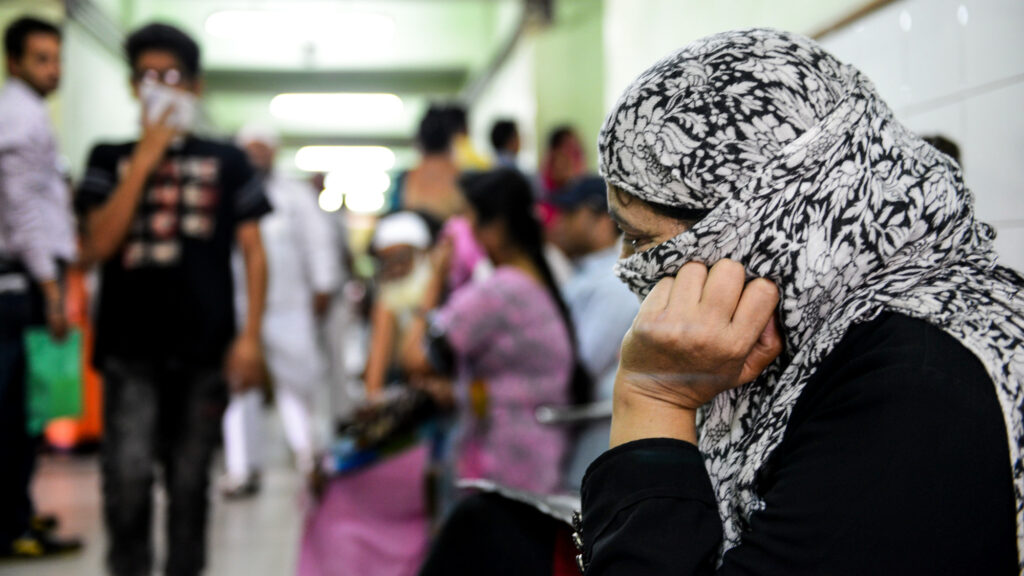Maharashtra recorded an average of 26 new tuberculosis (TB) cases every hour last year. The good news is that TB testing has significantly increased. However, experts note that there has been no major fluctuation in the number of new cases over the past three years. If this trend continues, a decline in new TB cases could be seen in the coming years.
Notably, individuals who have come in contact with TB patients undergo a Cy-TB test, and those identified as susceptible are given a preventive dose once a week for three months to stop the infection from spreading.
The World Health Organization (WHO) and other health organizations observe World TB Day to raise awareness and resources to combat TB globally. The day is linked to March 24, 1882, when Dr. Robert Koch discovered the bacterium responsible for TB. For this discovery, he was awarded the Nobel Prize in 1905.
India Leads the World in TB Cases
Tuberculosis is a serious infectious disease in India, caused by the Mycobacterium tuberculosis bacteria, primarily spreading through the respiratory system. India accounts for over 25% of the world’s total TB patients, and 10% of these cases are from Maharashtra alone.

The central government aims to make India TB-free by 2025, but the current pace suggests this goal may be difficult to achieve. Despite efforts such as new drug courses, awareness campaigns, and continuous patient follow-ups, TB cases have remained stable over the past three years.
According to data from the State TB Control Office:
- 2022: 19,98,356 people were tested, with 2,33,872 confirmed TB cases.
- 2023: 26,22,646 people were tested, and 2,23,444 cases were detected.
- 2024: 35,39,941 people underwent testing, with 2,30,515 found TB positive.
The data suggests that despite increased testing, TB cases in 2024 are slightly lower compared to 2022.
40,000 New TB Cases in Maharashtra

The nationwide 100-day anti-TB campaign, which concluded this month, identified 40,471 new TB cases in Maharashtra after screening over 1 crore people. Launched on December 7, 2024, the campaign ran until March 24, covering 53 regions across the state. According to official data, health workers screened a total of 1.37 crore individuals during this period. In comparison, throughout last year, Maharashtra had recorded 2.3 lakh TB cases.
To curb TB cases, the Maharashtra government has purchased 80 digital handheld X-ray machines and distributed them across districts. Additionally, 171 CBNAAT machines and 624 Truenat machines have been provided to various districts and municipal corporations for quick sputum testing. By 2025, the state plans to expand these facilities and establish more micro-laboratories for TB diagnosis.
Central Government Initiatives
- Since 2023, the TB-Free Panchayat Campaign has been running annually.
- In 2023, 2,251 villages achieved TB-free status, while in 2024, this number rose to 7,402 villages.
- In 2024, 1,60,395 patients benefited from TB-related health programs.
- Under the Nikshay Poshan Yojana, 4,799 patients have received ₹1,000 per month in 2025 so far.
Countries with the Highest TB Burden
Nearly half of the world’s TB cases are found in these eight countries:
India, Indonesia, China, the Philippines, Pakistan, Nigeria, Bangladesh, and South Africa.
TB: A Common Yet Preventable Disease in India
According to Dr. Deepak Baid, General Physician in Nulife Hospital, tuberculosis (TB) is a common disease in India that can affect various body parts, including bones, lungs, lymph nodes, abdomen, spine, and even the skin. This infectious disease spreads primarily through human contact, such as coughing or spitting in public places.
In India, one in every five people carries TB bacteria in their body. However, the disease only develops when the immune system weakens due to poor lifestyle habits, including irregular eating, lack of sleep, and physical inactivity. A weak immune system makes the body more susceptible, allowing TB bacteria to take hold.
High-Risk Groups for TB
Certain groups of people are at a higher risk of developing TB due to their weakened immune systems. Children and pregnant women are particularly vulnerable as their immunity is naturally lower, making it easier for TB bacteria to affect them. Elderly individuals also face a greater risk, as aging weakens the body’s ability to fight infections. Additionally, people suffering from chronic diseases such as diabetes, HIV, or other immune-compromising conditions are more susceptible to TB, as their bodies struggle to defend against bacterial infections.

Many believe TB is a common man’s disease, but that’s not true. Even Bollywood legend Amitabh Bachchan once revealed that he was diagnosed with spinal TB on the very day he started shooting for KBC in 2000. He underwent rigorous treatment for almost a year, enduring severe pain. “It was very uncomfortable—I couldn’t sit or lie down. Most of the time, I had to take 8-10 painkillers a day just to manage while hosting the show,” he shared. His story highlights that TB can affect anyone, regardless of status or lifestyle.
Common Symptoms of Pulmonary TB
- Persistent cough for more than two weeks
- Blood in cough
- Chest pain or difficulty breathing
- High fever, especially in the evening
- Night sweats
- Loss of appetite and rapid weight loss
- Fatigue and weakness
Symptoms of TB in Other Organs
- Swollen lymph nodes
- Pain in the spine or joints
- TB meningitis (brain TB): Headache, vomiting, confusion
- Abdominal TB: Stomach pain, bloating, indigestion
Treatment and Precautionary Measures
The good news is that TB treatment has been available in India for a long time. However, preventing the spread of TB requires improving lifestyle habits and maintaining hygiene. According to Dr. Baid, to prevent TB, one should:
- Cover their mouth while coughing or spitting
- Maintain cleanliness and hygiene.
- Follow a healthy and balanced diet to keep immunity strong.
Proper medical care, hygiene, and a healthy lifestyle are essential to protect these high-risk groups from TB.

[…] World TB Day: India Tops in Global TB Cases – Key Prevention Tips to Stay Safe Also Read […]